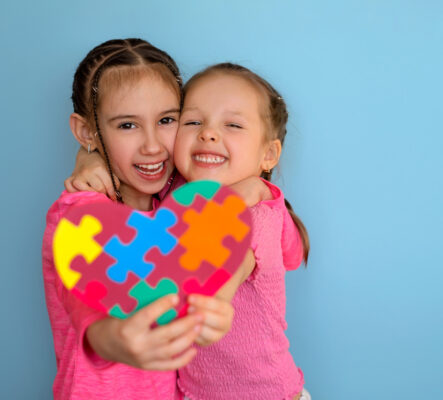
Coping Skills
There are so many ways children cope with the world around them. Things such as different environments, challenging situations, and new experiences can cause stress in children and ultimately lead to a meltdown. Having strategies, or coping skills, in place to help learn ways to deal with big feelings, unexpected changes in routines, and being in uncomfortable or new and unfamiliar situations can help children learn the tools they need to be successful with managing their emotions and solving problems.
While there are many different types of coping skills, no single approach will work for every child or person. It is important to explore the topic of coping skills and come up with a variety of ways to help support our kids and families. Here are some ideas to help you as you work with your child on developing Coping Skills:
Watch for “warning signs”:
- Recognize when things are stressful.
- Identify things that can be a trigger for emotions such as anger or anxiety.
- Consider sensory needs in an environment, such as loud crowds and bright colors, things that may also add to a child’s stress levels.
Looking for signs that your child is experiencing feelings of anxiety or overwhelmed can be an indicator that it is time to strategize the use of a known coping skill. It can also help you avoid or at least be better prepared to confront the situation.
Understand the “why” behind behaviors:
Even when a child cannot always communicate the way they are feeling, we can observe to see if there seems to be a common cause to a certain behavior or set of behaviors. Understanding and working through events in the day with your child can play a larger role in identifying areas where they are struggling to cope with things around them and the way that they are feeling. Helping your child realize how they are feeling is one of the best practices that you can do when strategizing what coping skill should be used.
Once the behavior is recognized and understood, we can help our children recognize and understand it too. The adults can provide the words, actions, recognize the signs, and provide help to the child who may be struggling to express themselves by modeling healthy coping behaviors in their everyday lives, too.
To learn more about the “why” behind certain behaviors, see our previous blog here.
Develop coping skills based on your child’s needs.
Knowing and practicing calming strategies such as mindfulness exercises, taking breaks when necessary, practicing deep breathing, and implementing schedules and visual aids will help when stressful situations occur. Knowing what your child needs in order to cope is vital. However, determining the missing factor in these situations can be tricky. Here are some ideas to keep in mind when developing a strategy that works for you and your child:
- Deep breathing: while it is sometimes difficult to communicate feelings to others, sometimes the response is to withhold a breath for too long or begin breathing too quickly. Taking a few deep breaths can really come in handy and result in a more calm and relaxed state.
- Going for a walk or taking a break: Engaging in a known or pleasant activity such as going for a walk, reading a book, or coloring can really bring joy and realization of any feelings to the forefront of your child’s mind. When things are stressful and overwhelming, engaging in a preferred activity can help a child feel more regulated and calmer.
- Take a sensory break: Stress around environments with sensory challenges is a common occurrence, such as bright lights and loud crowds with many sounds. During times like this, it is important to keep in mind some fidget toys can be tools and can really help focus and regulate a child’s emotional state as well as bringing along a comforting item when going into situations where sensory overwhelm is more likely.
- Practicing mindfulness: This is a practice that looks different for everybody, taking a moment to really recognize how one is feeling will help build understanding and acknowledge the use of a coping mechanism. Through exercise like yoga and other activities that regulate the central nervous system, we can work on bringing emotions to the surface and identifying them in order to really work through them.
Learning coping strategies can take time and effort. Remember, it is okay if what you are trying is not working right away. If your child is receiving therapy, it is important to work closely with your child’s therapists and identify what coping strategies are working in the learning environment. The more support we can provide to a child in developing effective coping strategies will help them develop better self-regulation skills, actively help in emotional identification and regulation, help practice mindfulness, and gain independence with balancing their emotional state as they continue to learn and grow.
You’ll find loads of ideas for practicing mindfulness, identifying emotions, and more over on our Pinterest.
Little Spurs Autism Centers offers collaborative and compassionate ABA Therapy to children 0-21 years old. Offering both center-based and home-based care, LSAC is excited to empower families by providing them with the support they need. For more information, please email us at autism@littlespurs.com



